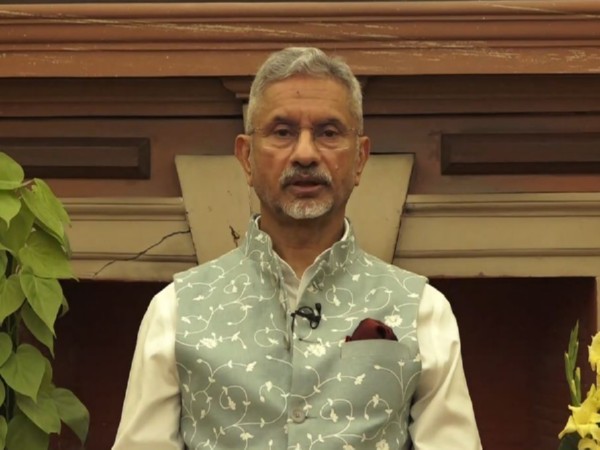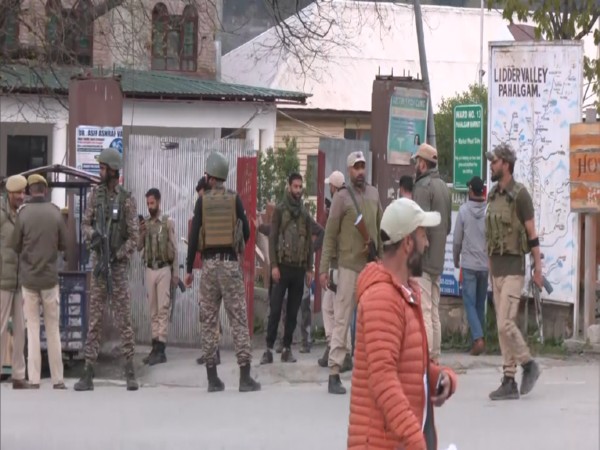Security law puts Hong Kong pastors at risk of being extradited to China: Watchdog
Jun 24, 2020

Hong Kong, June 24 : With China pushing ahead with the implementation of the national security law on Hong Kong, pastors including pro-democracy activists and religious leaders face a risk of being extradited to mainland China for trial, according to a US-based Christian watchdog.
"Under such laws, vocal Hong Kong clergy who have been supportive of Hong Kong's democracy movement, such as Cardinal Joseph Zen and Auxiliary Bishop Joseph Ha Chi-shing, could be extradited to mainland China to be tried, since Beijing considers them to be threats to the regime," Fox News quoted International Christian Concern (ICC) as saying in a statement.
"Other hundreds of protestant leaders or Christian organisations who have actively spoken out against the Hong Kong government might face the same fate, since Beijing has said it considers the mass protests that began last June as terrorist acts and any calls for Hong Kong's independence from China as acts of sedition," it said.
Last week, Chinese authorities divulged details of the new national security legislation for Hong Kong after the three-day meeting of the National People's Congress Standing Committee, Sputnik reported.
The controversial legislation comprises six chapters and 66 articles. The chapters, inter alia, cover general provisions, duties and mechanisms for ensuring Hong Kong's national security, issues of crimes and penalties, jurisdiction and law enforcement.
The draft document lists the main responsibilities of the Chinese authorities regarding national security, as well as Hong Kong's constitutional responsibility to maintain it. The legislation sets out rules for the prevention, suppression and punishment of secessionist activities, attempts to undermine the state authority, terrorist activities and colluding with foreign states or forces to jeopardise national security.
Critics say that the legislation would destroy the civil liberties that Hong Kong residents enjoy under the 'one country, two systems' agreement put in place when the United Kingdom handed the territory back to China in 1997.
For over a year, Hong Kong citizens have been out on the streets protesting against the proposed extradition bill, which would have allowed criminal suspects in the city to be sent to mainland China for trial. The bill was later withdrawn by Hong Kong Chief Executive Leader Carrie Lam. The protests have now broadened into a campaign for more democratic rights.
Massive demonstrations in Hong Kong have prevented China from implementing the security law, but Beijing has made it clear that the legislation would be enacted "without delay". Under the law, a police unit will be established to oversee the implementation of the legislation, along with secret policing in the former British colony.
"China's notorious legal system and its lack of transparency can easily criminalise anybody and place them in jail. Many Chinese pastors and Christians, such as pastor Wang Yi, elder Qin Derfu and pastor John Cao are now imprisoned for trumped-up charges, such as 'subversion of state power,' 'illegal border crossing,' and 'illegal business operation,'" ICC said.
The security law has been criticised by the international community despite both China and Hong Kong's leadership asserting that they have the full right to implement the legislation.
Hong Kong's legislature has also approved a bill making it illegal to insult the Chinese national anthem. Several opposition leaders have been arrested after participating in the protests.
"Our long march to democracy will be forced into a prolonged period of crackdown," Hong Kong activist Joshua Wong was quoted as saying in an online pro-democracy event on last Thursday, adding opposition to the law "could be my last testimony while I am still free".
Recently, Foreign Ministers of the Group of Seven (G7) member countries issued a joint statement, strongly urging China to reconsider its decision to impose national security legislation on Hong Kong.
In a resolution adopted on June 19 by 565 votes to 34 and with 62 abstentions, the European Parliament voted in favour of bringing China before the International Court of Justice over its decision to adopt the new national security law for Hong Kong.



















